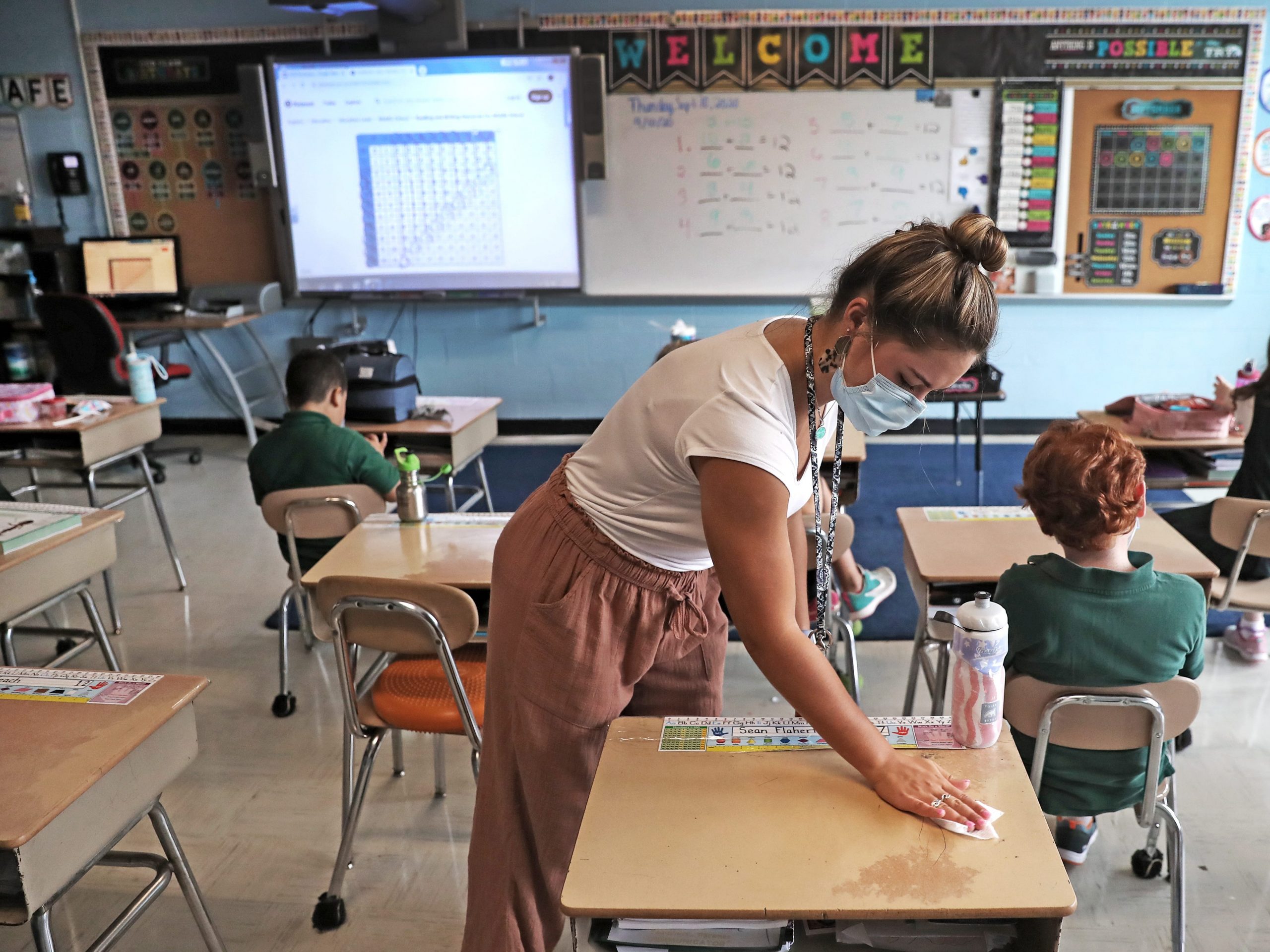
David L. Ryan/The Boston Globe via Getty Images
- Biden's new American Families Plan plan includes a $318 billion investment in the US education system.
- The $1.8 trillion plan would offer universal pre-K and two years of free community college.
- It also includes a $9 billion investment to help prepare teachers to meet community demands.
- See more stories on Insider's business page.
President Joe Biden will unveil a $1.8 trillion plan on Wednesday, the second of his two-part infrastructure package worth about $4 trillion overall.
While the first part of the plan included funding for physical infrastructure, the second entirely focuses on care-economy measures, including a national paid leave and four more years of expanded direct payments to parents. It also includes a $318 billion investment in the country's education system.
The White House fact sheet detailing the so-called American Families Plan on Wednesday said that while Biden's $1.9 trillion stimulus continues to provide relief to Americans suffering from the pandemic, his infrastructure proposals are needed to "build a stronger economy that does not leave anyone behind – we need to build back better. President Biden knows a strong middle class is the backbone of America."
The plan will make "transformational investments from early childhood to higher education," senior administration officials said in a press call. The administration also called investing in education a "down payment on the future of America," contrasting this moment with access to high school becoming more widely available at the turn of the 20th century. "Everyone knows that 12 years is not enough today."
Here's how Biden's infrastructure proposal invests in America's education:
Universal pre-K for all 3- and 4-year-olds
Biden will invest $200 billion to offer free, high-quality preschool to all 3- and 4-year-olds, which would benefit 5 million children and save the average family $13,000. According to the fact sheet, all employees participating in a pre-K program would earn at least $15 an hour. The plan would also include investments to support teachers who want to earn another degree or seek another credential that strengthens their work as educators.
The fact sheet highlights research showing that many children, particularly low-income children and children of color, do not have access to quality preschool education, and seeks to remedy that nationwide. Similar efforts at the local level have succeeded at increasing enrollment, such as New York City Mayor Bill de Blasio's universal pre-K program for all 4-year-olds, which showed enrollment growth from 19,000 to 53,000 in 2014.
Free community college and low-income aid
Through a $109 billion investment, Biden wants to ensure that every American gets access to two free years of community college. This could be extended by up to four years, if circumstances warrant, thereby ensuring that first-time workers and students could earn college degrees for free. If all states, tribes, and territories participate, the fact sheet said, about 5.5 million students would pay $0 in tuition and fees.
In addition to free community college, Biden's other postsecondary education investments include:
- Increasing the maximum Pell Grant award fo $1,400 to assist the nearly 7 million students who depend on Pell Grants;
- A $62 billion grant program to invest in completion and retention activities at schools that serve a high number of low-income students;
- And a $39 billion program that provides two years of subsidized tuition for students from families earning less than $125,000 enrolled in a four-year Historically Black College or University (HBCU) or Minority Serving Institution (MSI).
Teacher preparation
Before the pandemic, schools across the country needed an estimated 100,000 additional certified teachers, and the shortages primarily affected schools with higher percentages of students of color. To address the disparities, Biden is calling for a $9 billion investment to:
- Double scholarships for future teachers from $4,000 to $8,000 per year while earning their degree, target $400 million for teacher preparation at HBCUs, and $900 million for special education teachers;
- Help current teachers earn needed credentials through a $1.6 billion investment;
- And support educator leadership through $2 billion to support programs that encourage high-quality mentorship.